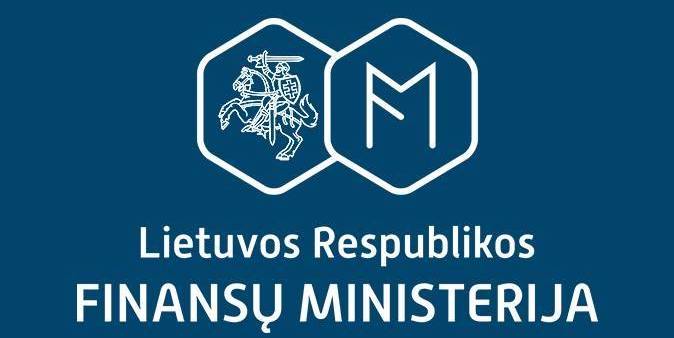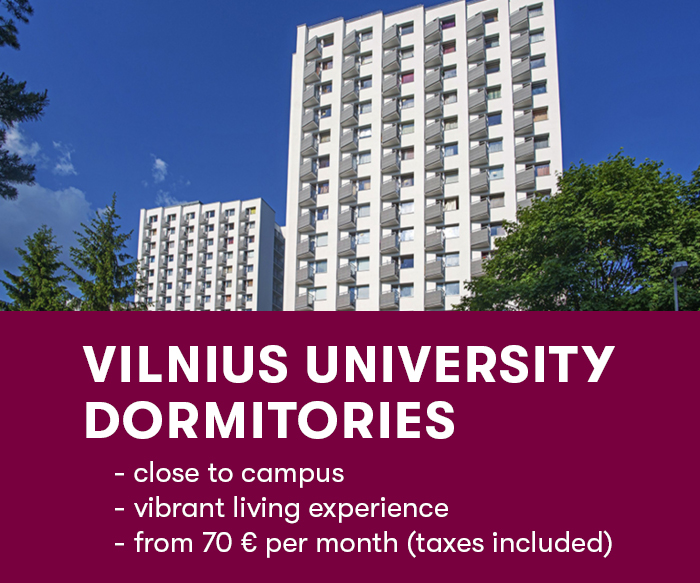- About
- Syllabus
- Career Opportunities
- Testimonials
- Fee & Finances
- Contact Us
- For Students
- Double Degree
About


The program is focused on the strategic challenges confronting business firms which compete in the global economy. It develops global business leaders who are able to maintain strong strategic positions in global markets, lead the organization through continuous change and work in a highly intercultural environment.
Graduates of the programme will be able to critically analyse and evaluate global business environment as well as operations at the macro- and micro- levels and successfully develop and implement global business expansion strategies and plans.
The programme provides a solid foundation for both an in-depth understanding of business processes and the application of economic knowledge to make business decisions based on knowledge and global practice.
All international applicants must meet the general admission requirements.
Important admission note for non-EU/EFTA applicants: The gap since completing your Bachelor's degree must not exceed five years.
For more information please write to the Faculty academic coordinator:
Schedule
Global Business & Economics is a two-year study programme, conducted primarily on-campus, although some subjects may be taught remotely via the MS Teams platform.
Classes are held on weekday evenings from 5:45 PM to 9:00 PM (Lithuanian time). Each semester, students study 4 to 6 different subjects, organized in modules. Typically, 1 to 2 subjects are studied simultaneously, with new subjects starting after the completion of the previous ones. The Master's thesis is defended in three stages, during the second, third, and fourth semesters.
You Will Learn
In the face of globalization, digitalization and artificial intelligence expansion around the globe there is a sharply growing shift toward ability of the managers to chose the right strategy for their global business. The course requires thinking about multi-industry and multi-country business decisions from a managerial perspective. Completion of Global Business Strategy and Contemporary Global Business models courses will provide students with insights and frameworks to navigate multi-country market expansion and competition.
Are you a leader who empowers your employees and partners and keep the organization going through different times? If you are the one, you will be in the wishlist of any business around the globe. These competencies are developed in Leadership, Change management and Intercultural management courses.
There is no way to be a powerful leader without strong understanding of corporate finance. Specialists with high knowledge in finance are of high demand in leading organizations. All investment and business development decisions have to have numbers behind it. These competences are developed in Corporate finance course.
The market players that will be able to empower digital marketing and international e-commerce tools will be at the forefront of the global markets. These competencies are developed in International e-commerce and marketing.
The leading organizations around the globe are seeking real talents. These people could be from different countries and cultures. How successfully lead such an intercultural team? These questions are answered in Intercultural management and Human resource management courses.
Study Overview
- You will study in an international enviroment, meet friends from different continents.
- You will be inspired by practitioniers and experienced professionals.
- You will integrate theoretical knowledge and practical skills.
- For the best students the programme offers an experience under double-degree programmes with Parthenope University of Naples (Italy) and the University of Parma (Italy).

Entry Requirements
Admission requirements for foreigners
- A Bachelor’s degree or its equivalent.
- No less than 20 ECTS credits in the fields of Economics, Management, Marketing and other similar fields, or at least three years of professional experience in the field of the study programme proven with an official document from the employer.
- English language proficiency at a level not lower than B2 (following the Common European Framework of Reference for Languages (CEFR)).
- Motivational interview.
In addition, all applicants have to fulfil the general admission requirements.
Admission requirements for Lithuanian citizens
Applicants to this study program must meet at least one of the following criteria:
1) Completed first cycle university studies in the fields of Economics or Business and Public Management.
2) Completed first cycle university studies in other fields with at least 20 ECTS from the management (compulsory) and marketing, economics as well as business or public administration fields, or completed first cycle university studies in other fields and completed complementary* studies at VU FEBA.
3) Completed professional bachelor studies and complementary* studies at VU FEBA.
4) Completed first cycle university studies in other fields and acquired at least three years of professional work experience in the field of the study programme.
* Applicants who have completed complementary studies at other universities may apply only if the completed complementary studies meet the requirements of Vilnius University Faculty of Economics and Business Administration for complementary studies and provide a certificate of completion.
Lecturers
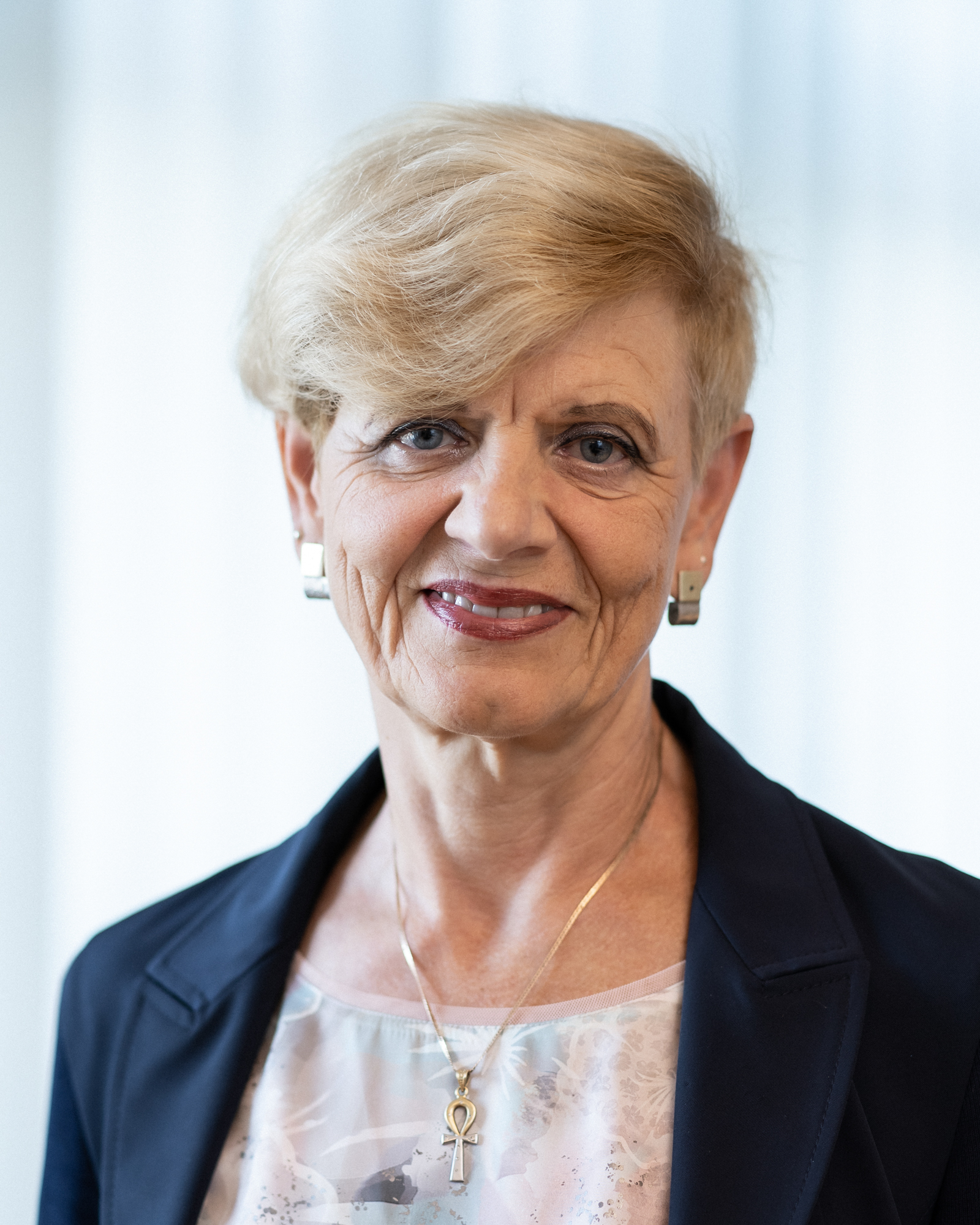 Laimutė Urbšienė
Laimutė Urbšienė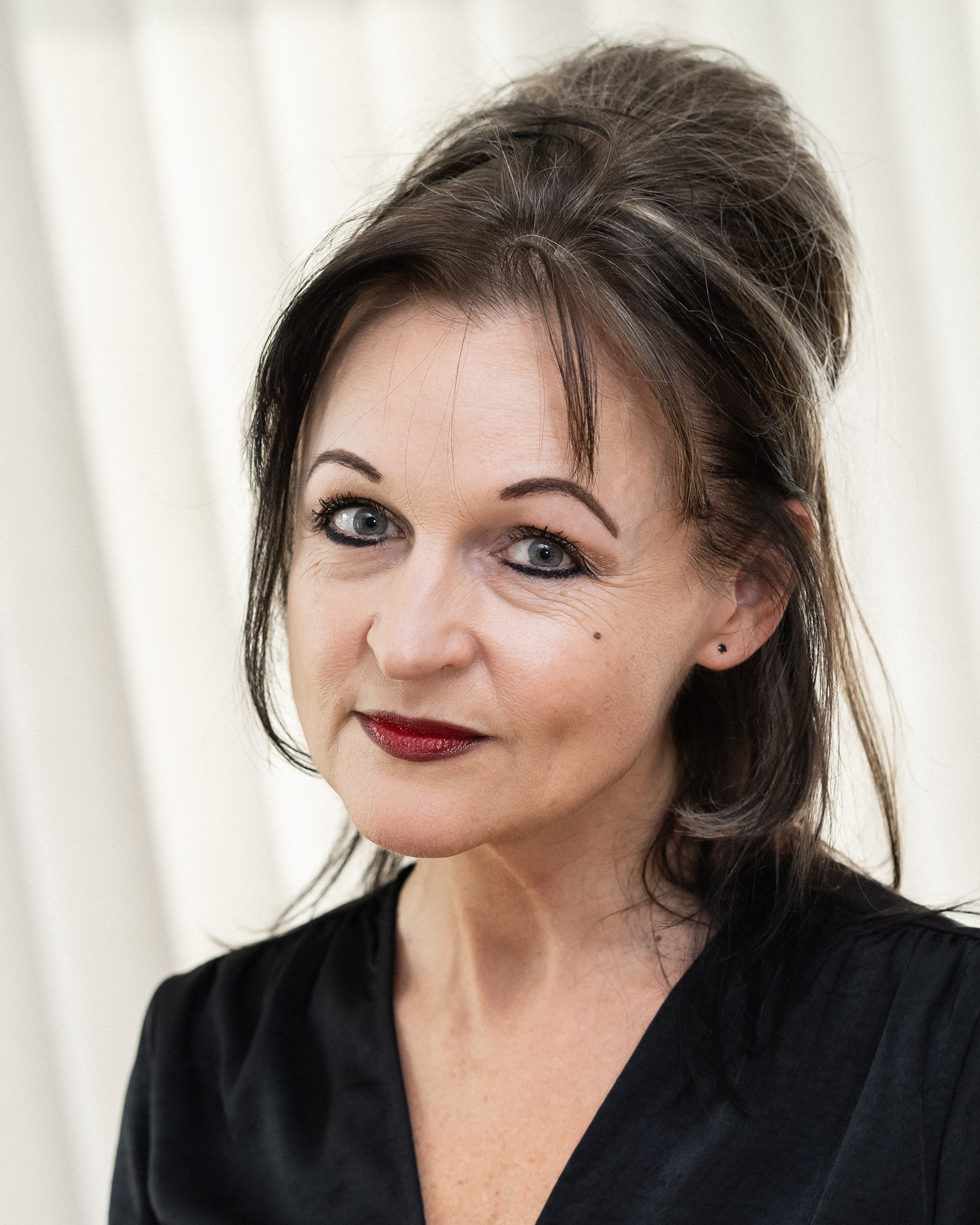 Rasa Paulienė
Rasa Paulienė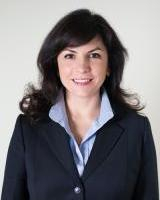 Erika Vaiginienė
Erika Vaiginienė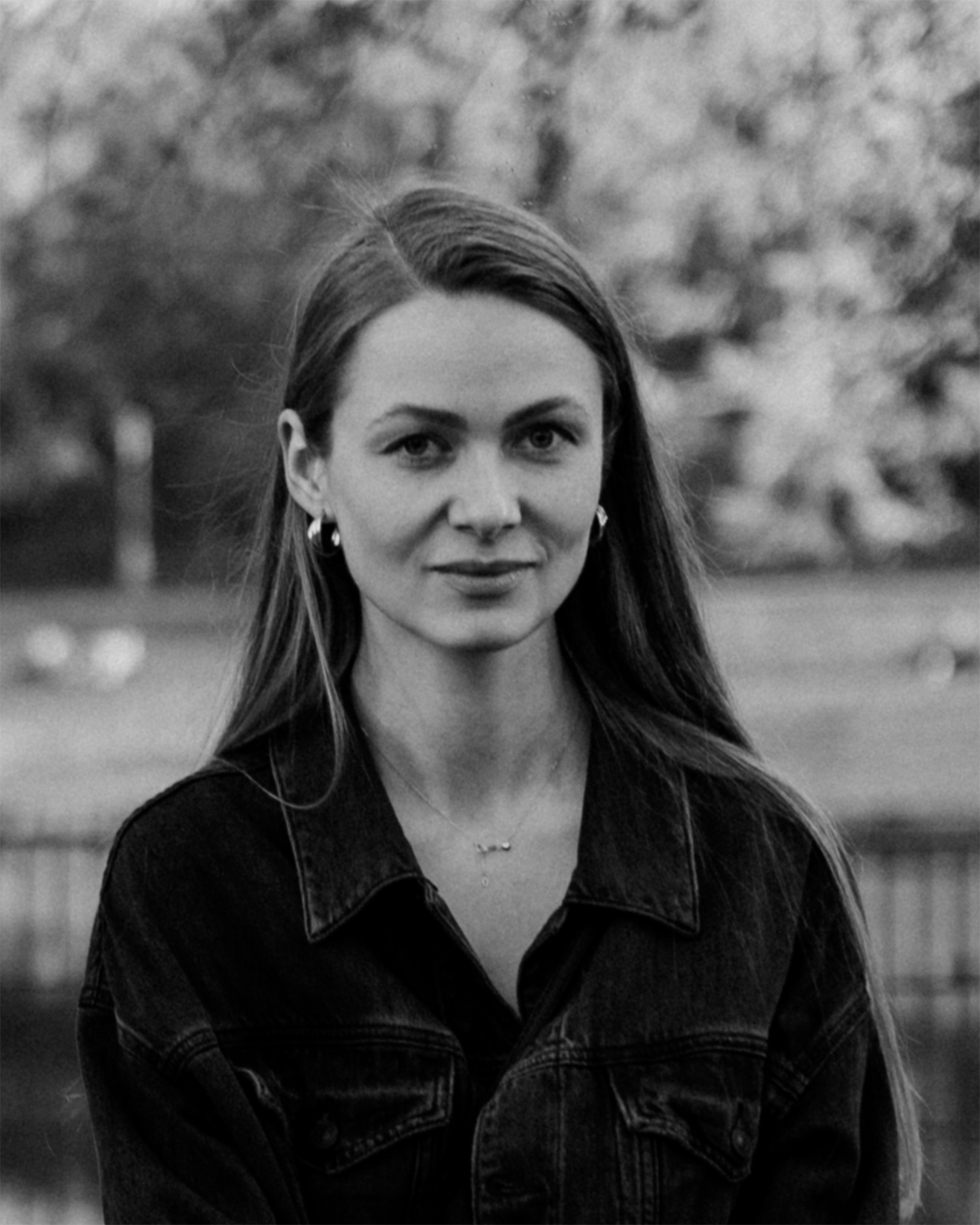 Viltė Kristina-Dessers
Viltė Kristina-Dessers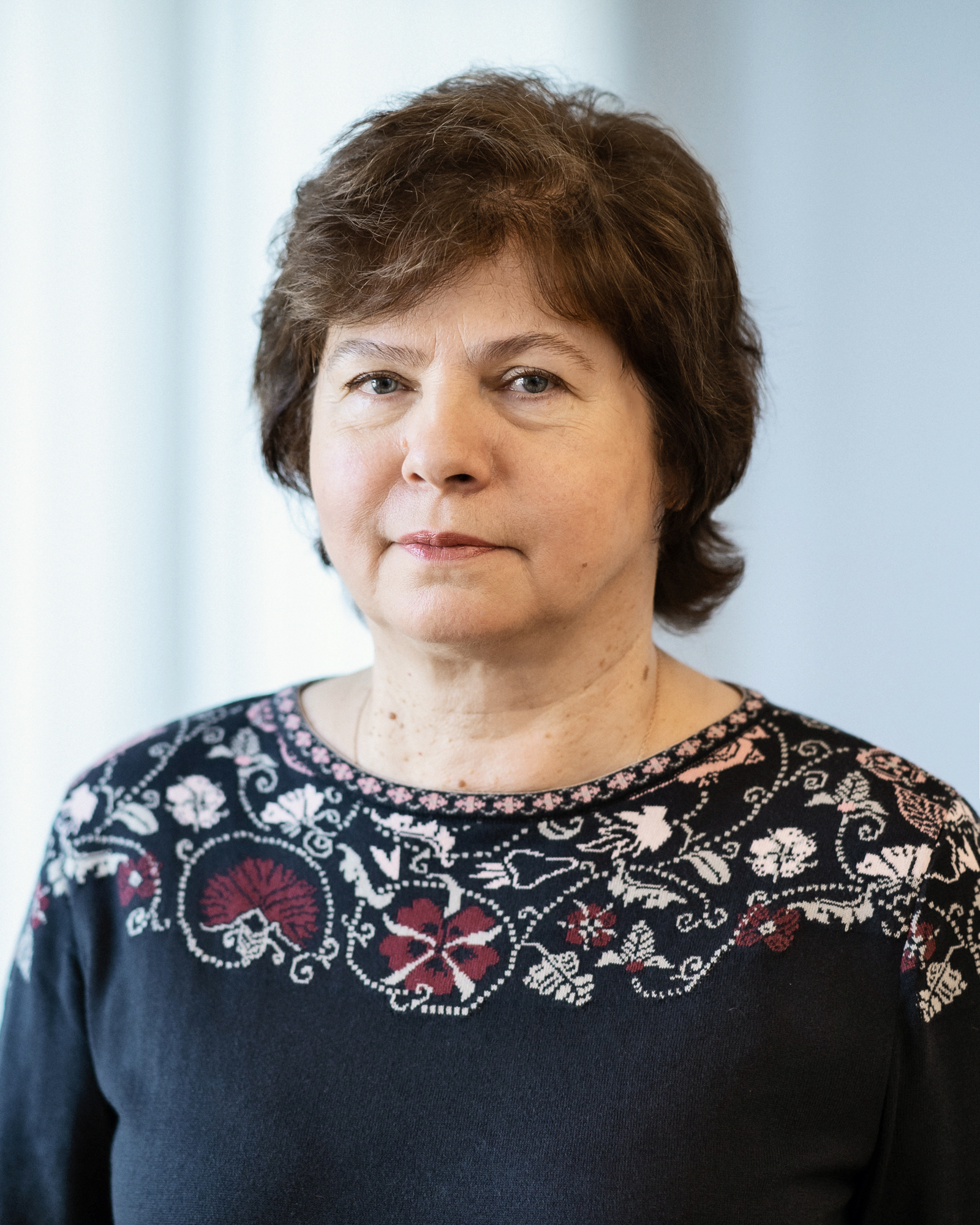 Danuta Diskienė
Danuta Diskienė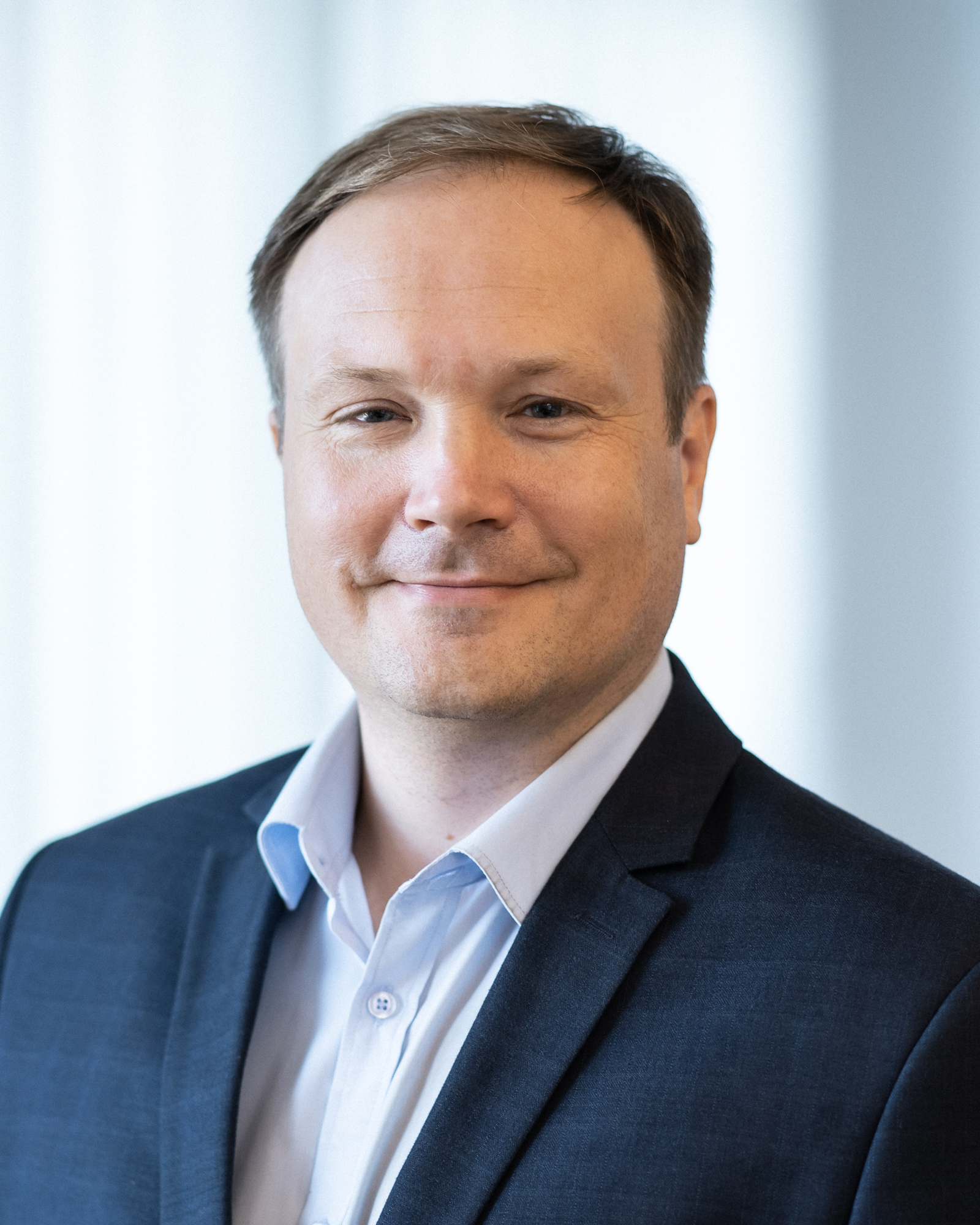 Arūnas Burinskas
Arūnas Burinskas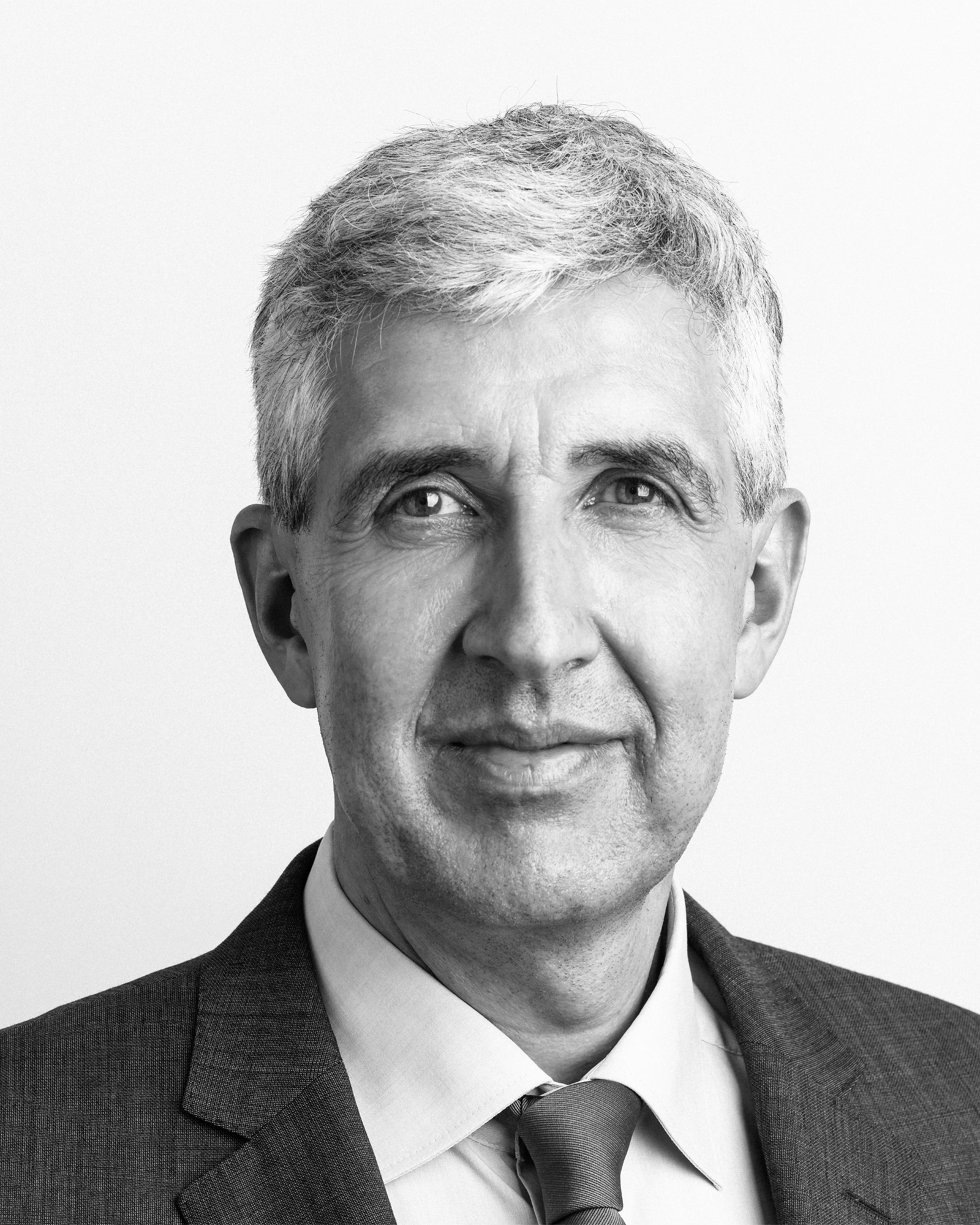 Christof Gellweiler
Christof Gellweiler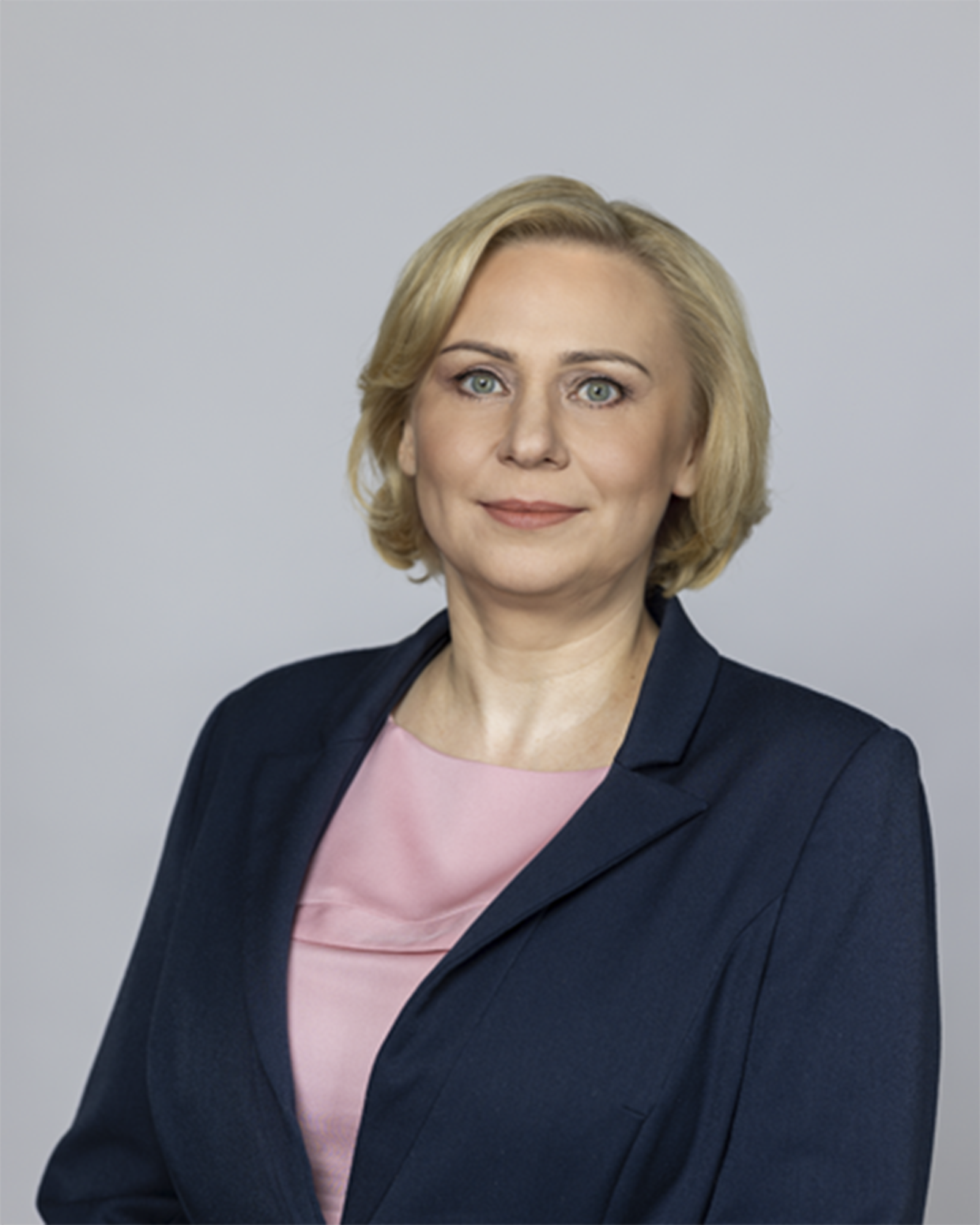 Rima Rubčinskaitė
Rima Rubčinskaitė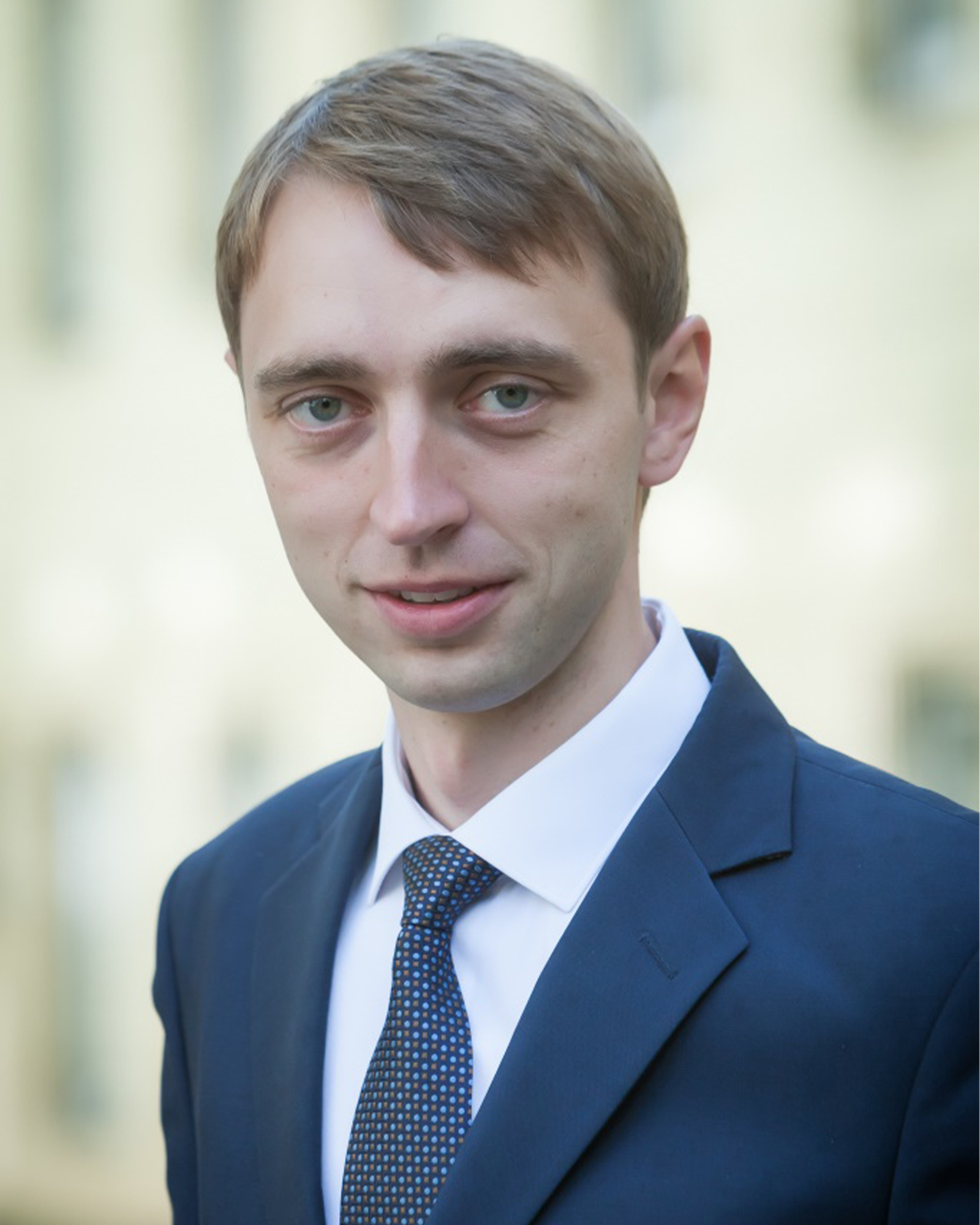 Linas Jurkšas
Linas Jurkšas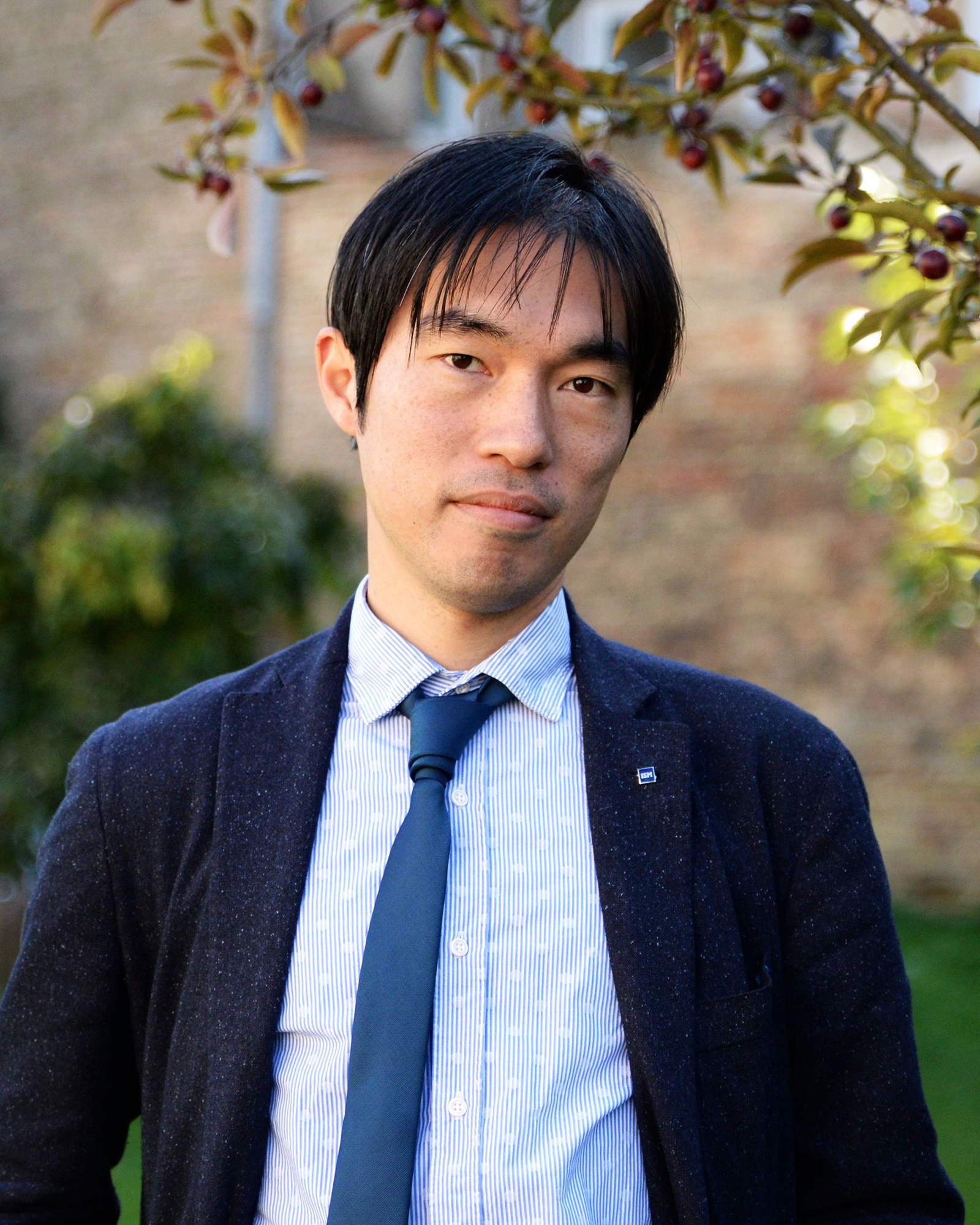 Tom Hashimoto
Tom Hashimoto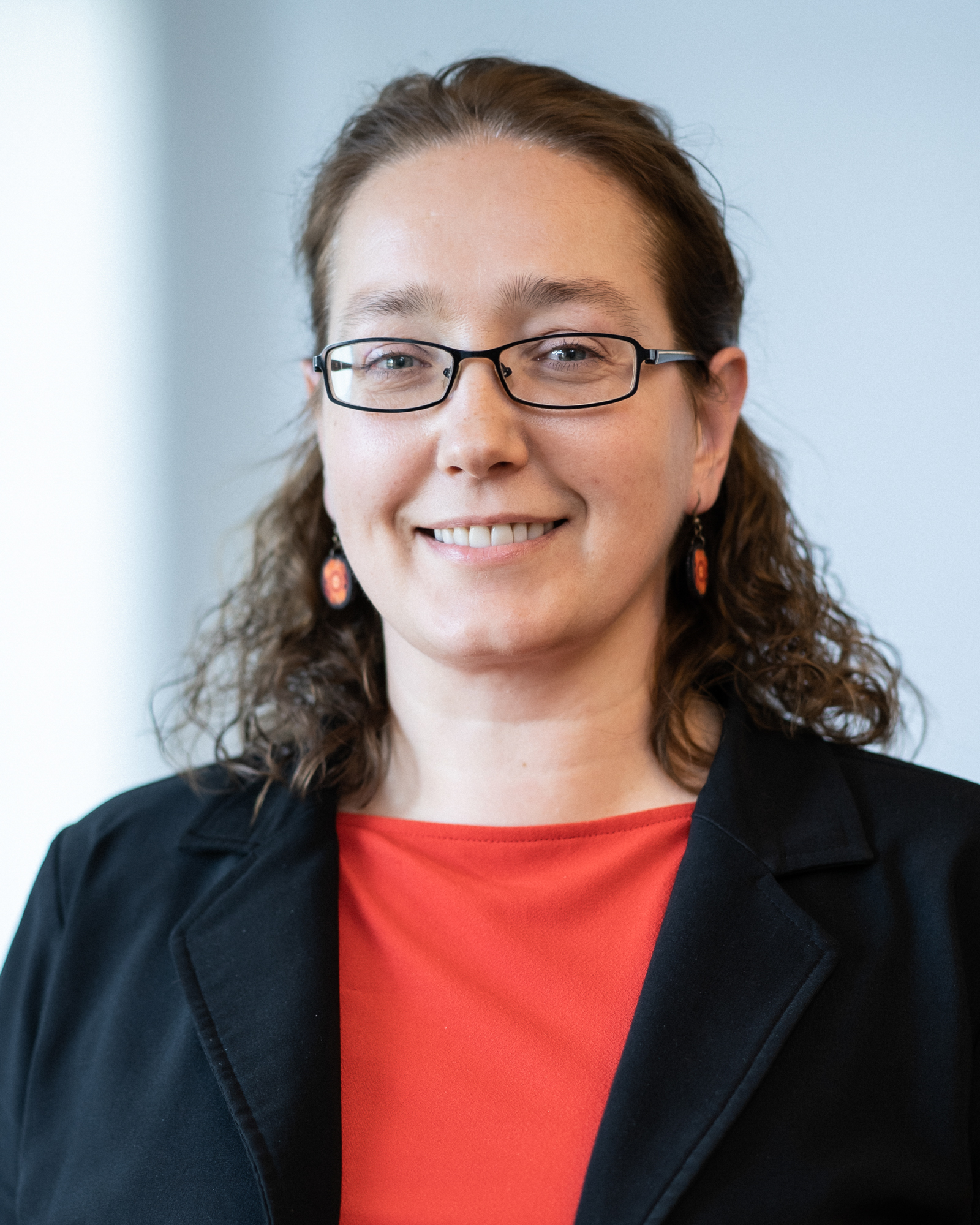 Roma Adomaitienė
Roma Adomaitienė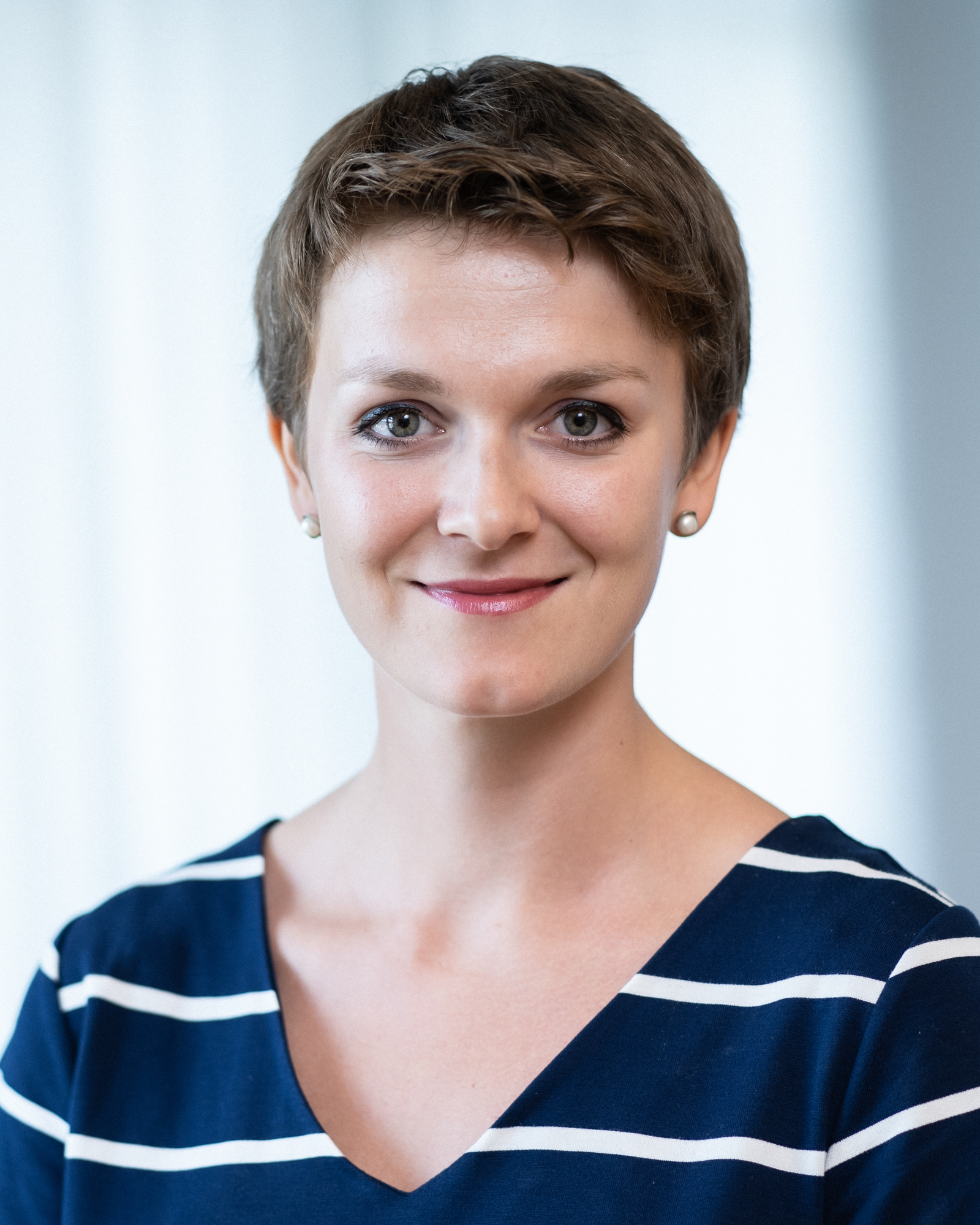 Ona Marija Vyšniauskė
Ona Marija Vyšniauskė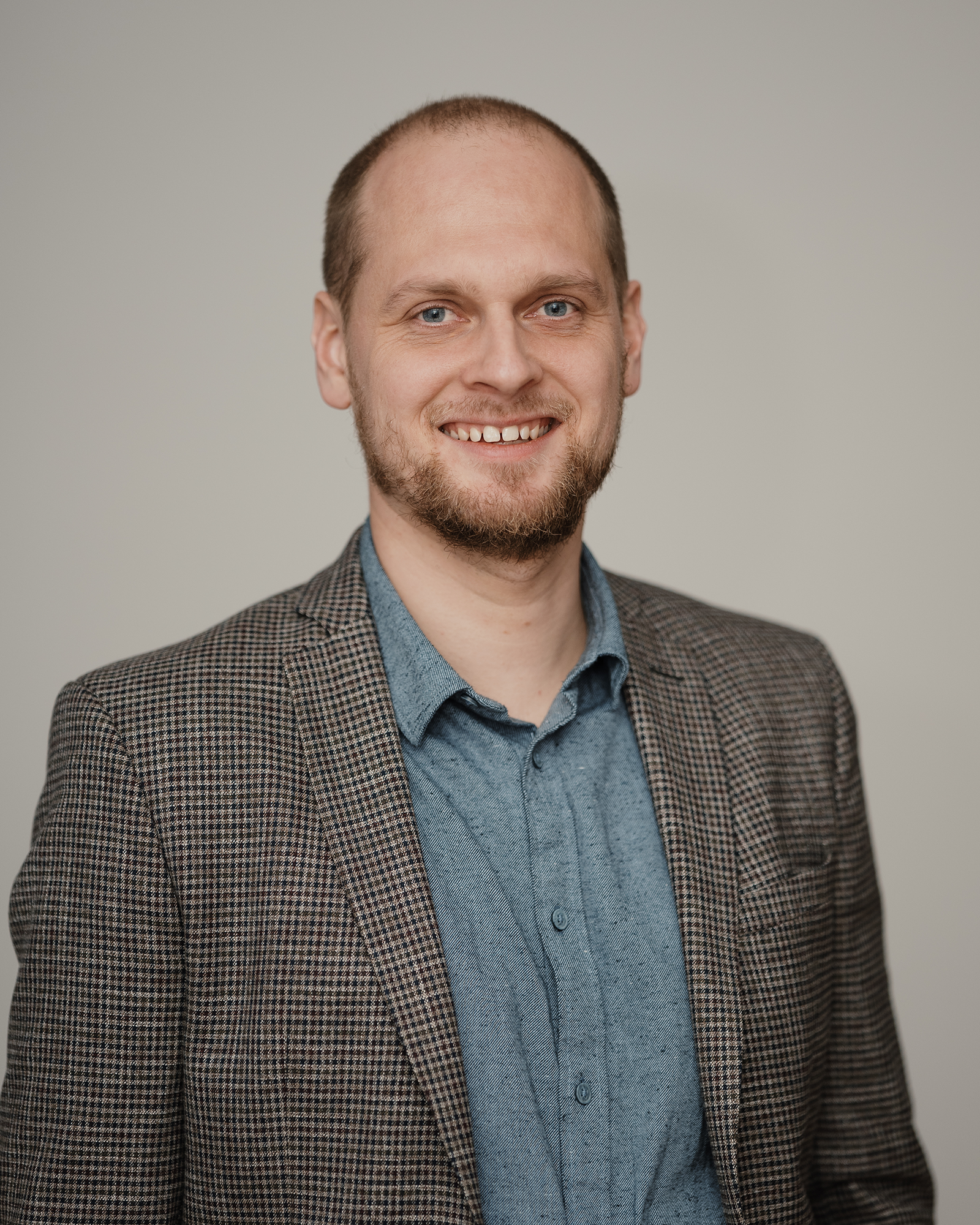 Ignas Zimaitis
Ignas Zimaitis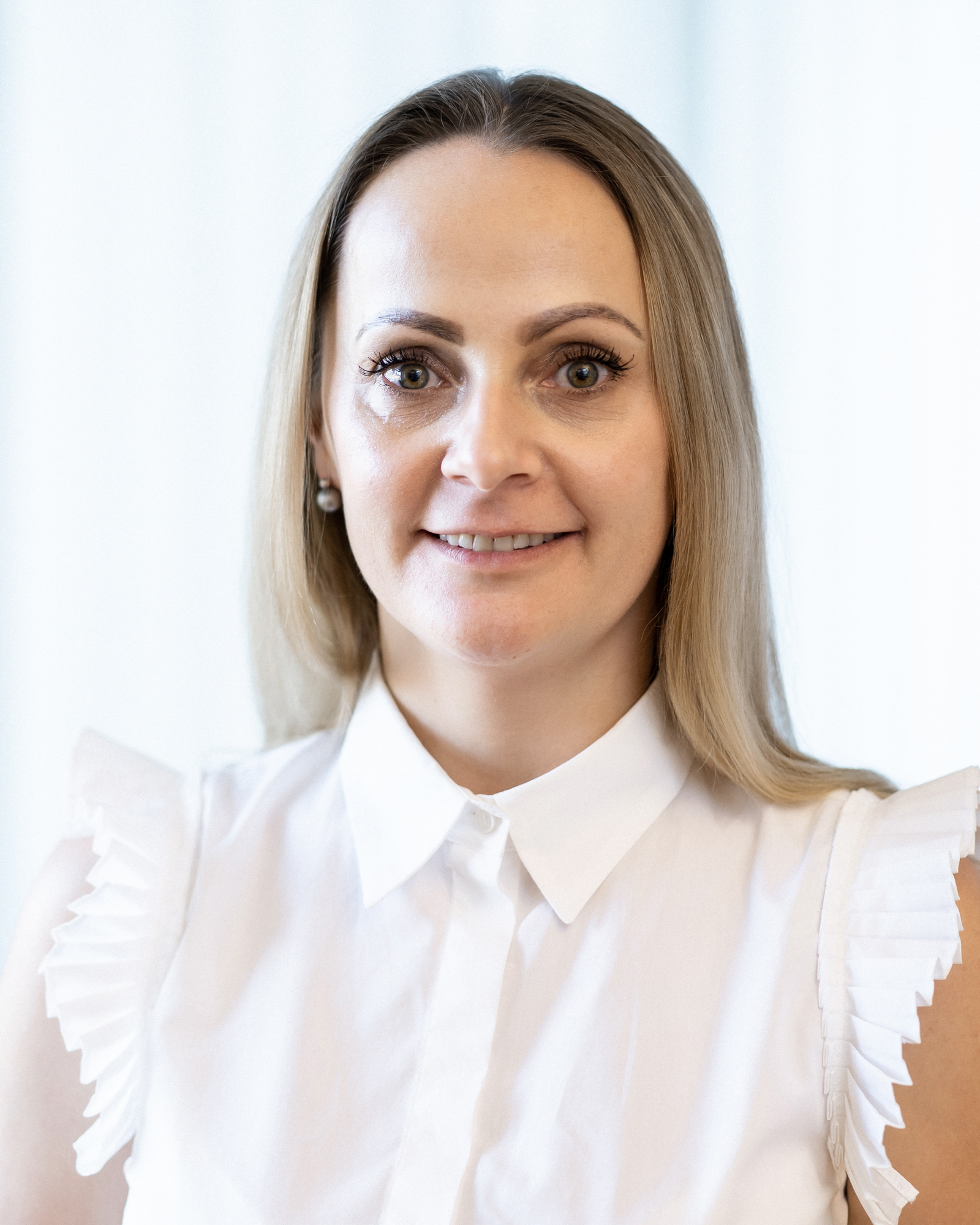 Viktorija Cohen
Viktorija Cohen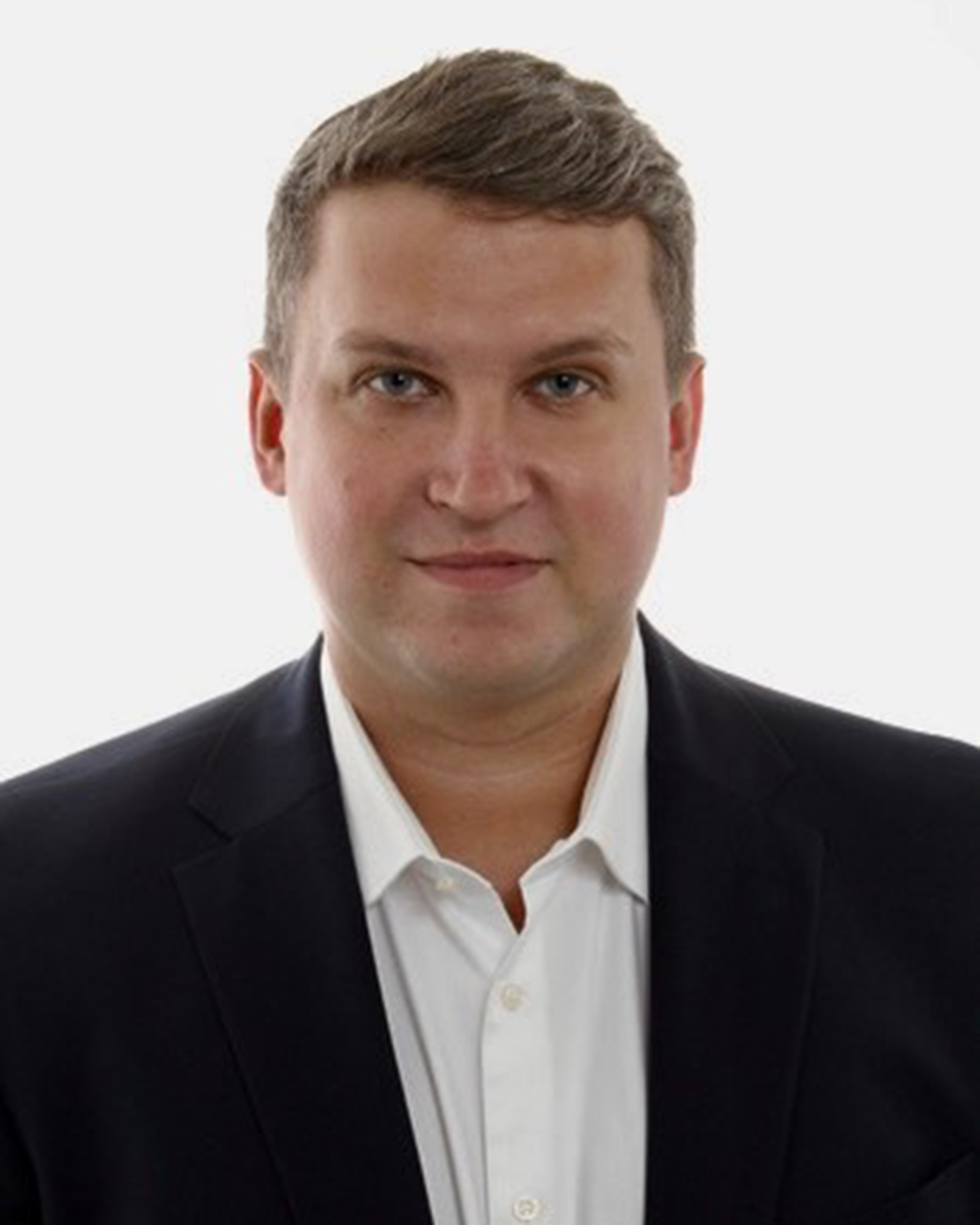 Ramojus Motuzas
Ramojus Motuzas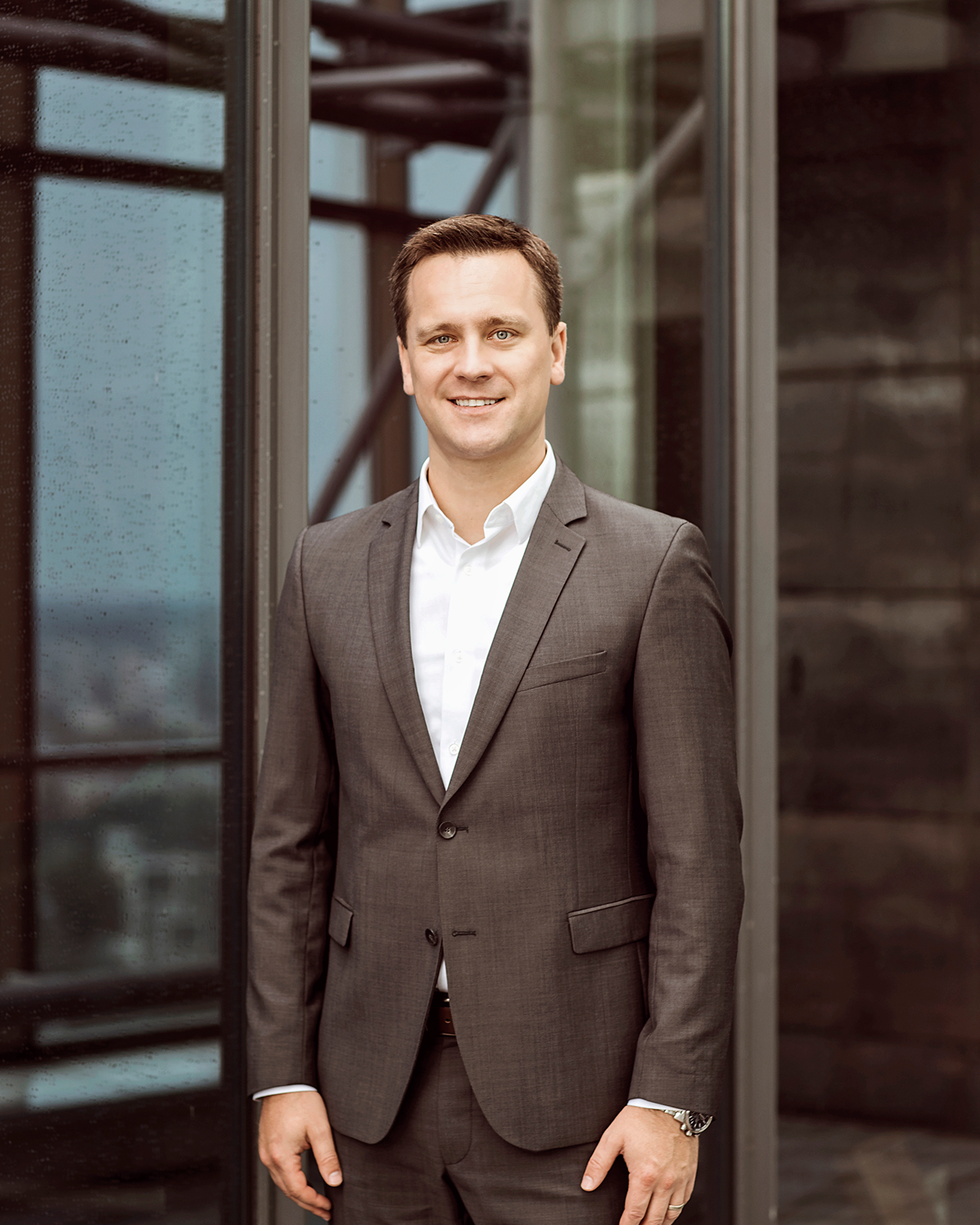 Gediminas Baublys
Gediminas Baublys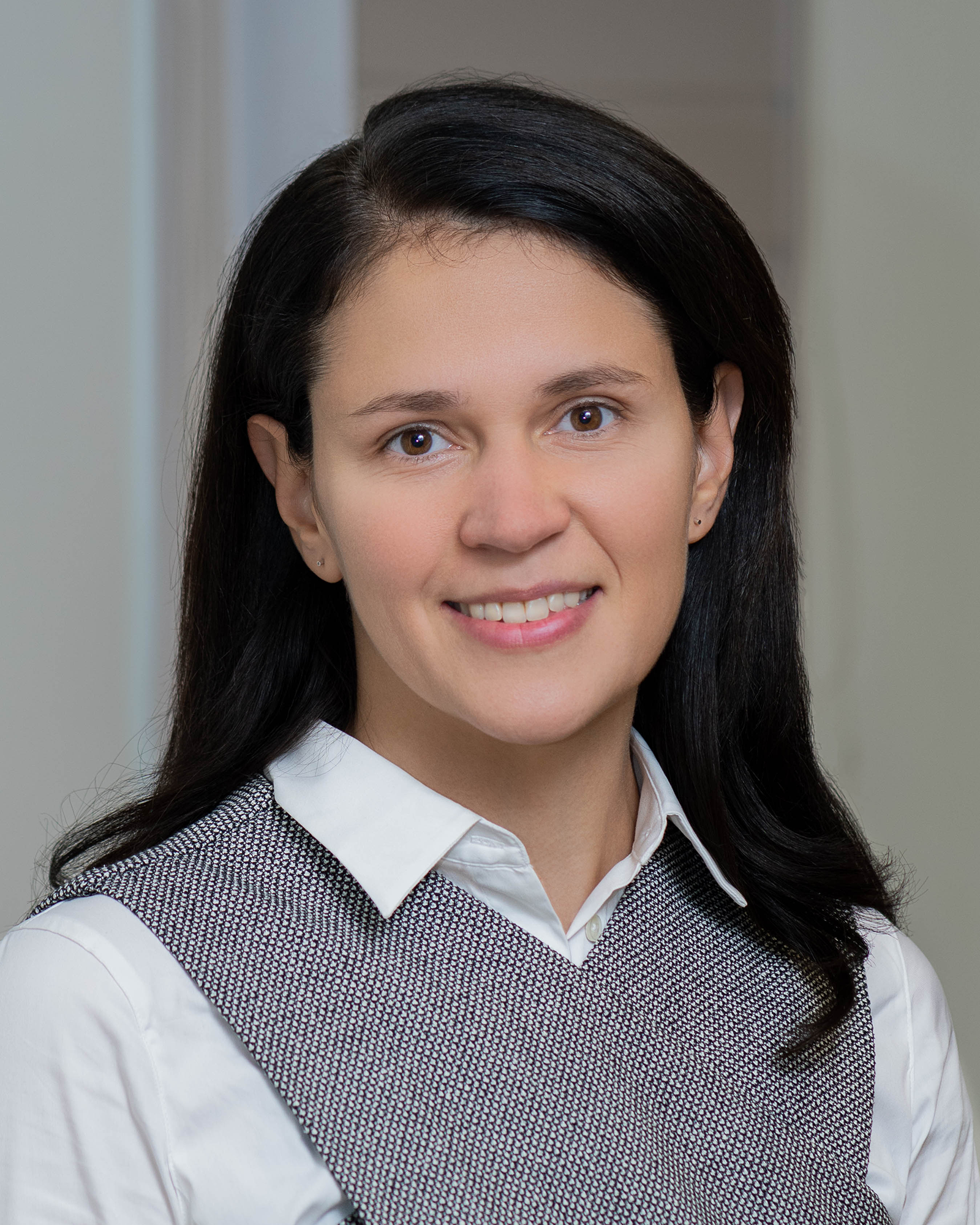 Giedrė Dzemydaitė
Giedrė Dzemydaitė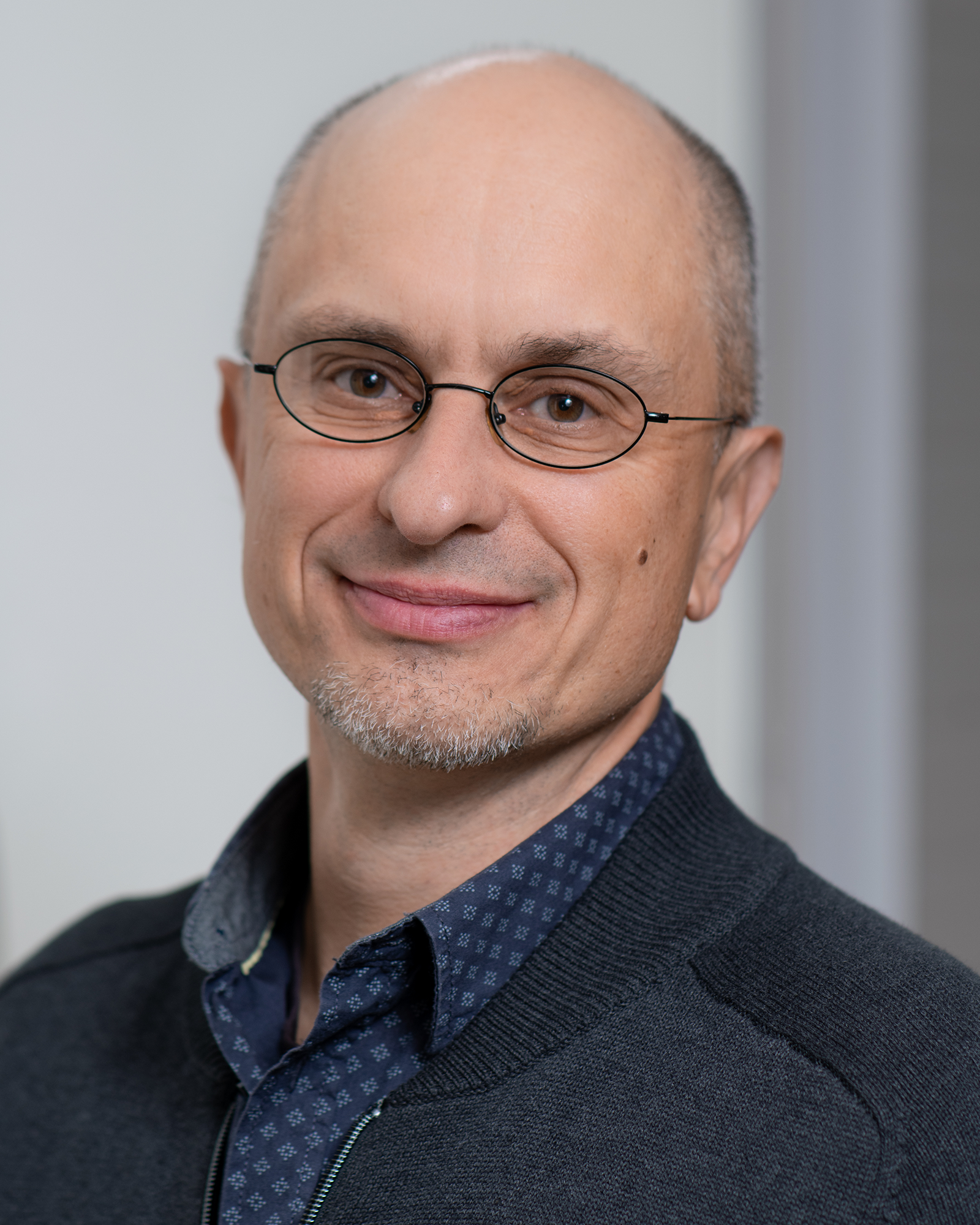 Žilvinas Židonis
Žilvinas Židonis
Syllabus
| Subjects of study | Credits |
|---|---|
| Semester 1 Autumn | |
| Compulsory Courses | 25.0 |
| Corporate Finance | 5.0 |
| Global Business Strategy | 5.0 |
| International Trade and Foreign Direct Investment | 5.0 |
| Smart Technology and Digitalization | 5.0 |
| Total Quality Management and Business Excellence | 5.0 |
| Optional Courses | 5.0 |
| Competition Policy and Practice | 5.0 |
| Economic Globalization | 5.0 |
| Global Entrepreneurship | 5.0 |
| International Electronic Commerce and Electronic Marketing | 5.0 |
| Semester 2 Spring | |
| Compulsory Courses | 25.0 |
| Comparative Economics | 5.0 |
| Intellectual Property and Technology Law | 5.0 |
| Management of International Projects | 5.0 |
| Scientific Research Work I/II p. | 5.0 |
| Statistical Data Analysis Using E-views | 5.0 |
| Optional Courses | 5.0 |
| Business Valuation | 5.0 |
| Cross-Cultural Management | 5.0 |
| Knowledge and Innovation Management | 5.0 |
| Semester 3 Autumn | |
| Compulsory Courses | 25.0 |
| Leadership | 5.0 |
| Management of Change | 5.0 |
| Scientific Research Work II/II p. | 10.0 |
| Statistical Data Analysis of Survey Using SPSS | 5.0 |
| Optional Courses | 5.0 |
| Competition Policy and Practice | 5.0 |
| Global Entrepreneurship | 5.0 |
| International Electronic Commerce and Electronic Marketing | 5.0 |
| Semester 4 Spring | |
| Compulsory Courses | 25.0 |
| Cross-Cultural Marketing | 5.0 |
| International Human Resource Management | 5.0 |
| Master Final Thesis (Study field: Management) | 15.0 |
| Optional Courses | 5.0 |
| Contemporary Global Business Models | 5.0 |
| Sustainable Development | 5.0 |
Career Opportunities

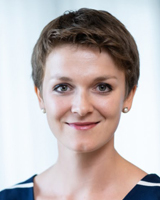
Ona Vysniauskaitė, Director of the British Council Lithuania
This course offers a valuable opportunity for future-to-be economic decision makers to acquire both the analytical and practical knowledge of different business aspects and their impact on economic performance. Students will be able to develop the ability to critically assess the validity of responses to different economic developments in the past and of today, which is a important and needed skillset in today's world and in any professional environment.
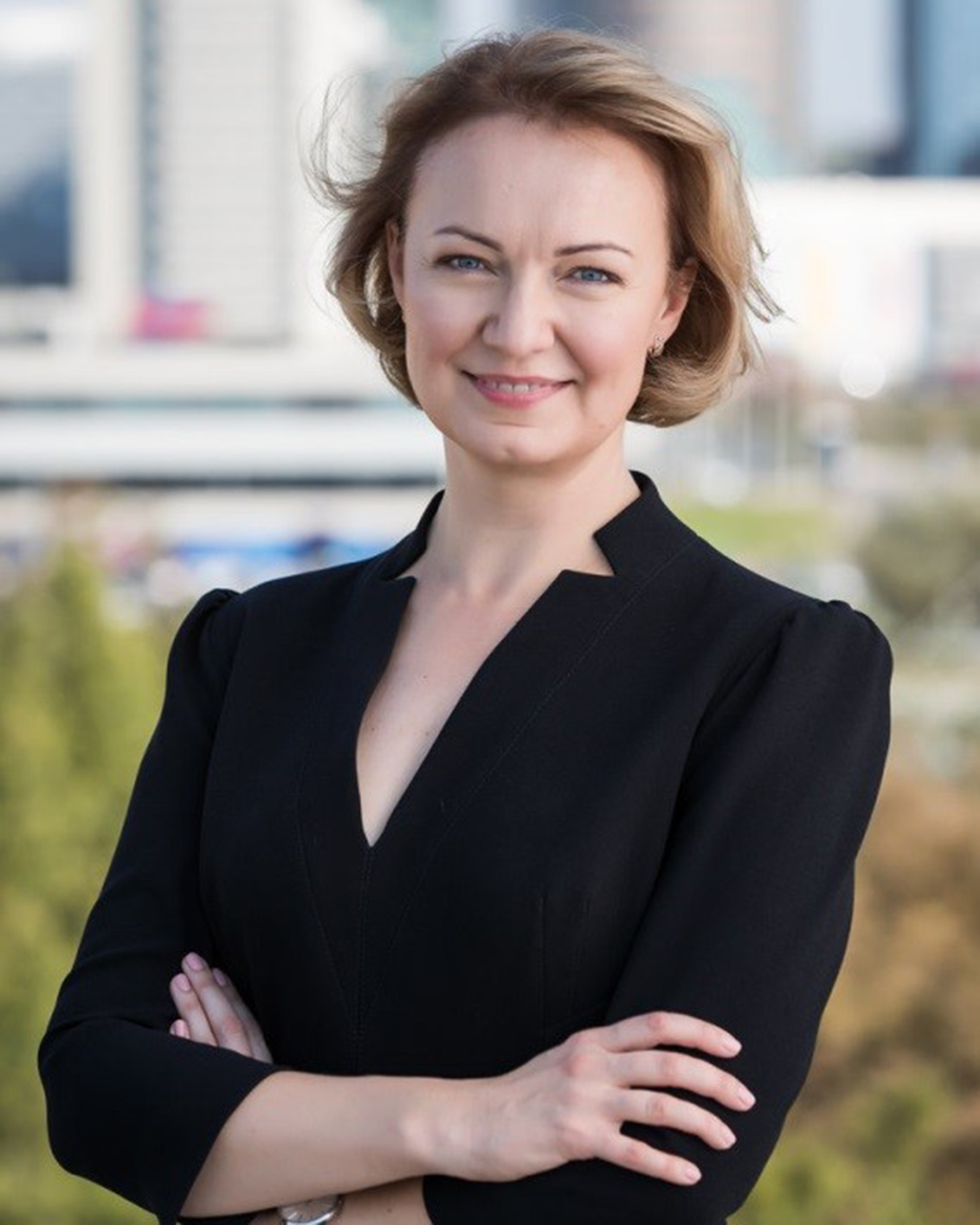 Rasa Kavolytė, Director of the State Treasury Department of the Ministry of Finance of the Republic of Lithuania
Rasa Kavolytė, Director of the State Treasury Department of the Ministry of Finance of the Republic of Lithuania
The Ministry of Finance of the Republic of Lithuania is open to students with strong economic knowledge and interest in processes in global economics. The Global Business and Economics program provides a strong basis for economic knowledge that can be applied to find solutions to global economic problems, both in business and in the public sector. The range of disciplines and excellent knowledge of the subject by professors provide the basis for developing systemic thinking, critically assessing and analysing various socio-economic problems and processes, analysing economic phenomena, and providing insights, forecasts, and suggestions.
Testimonials
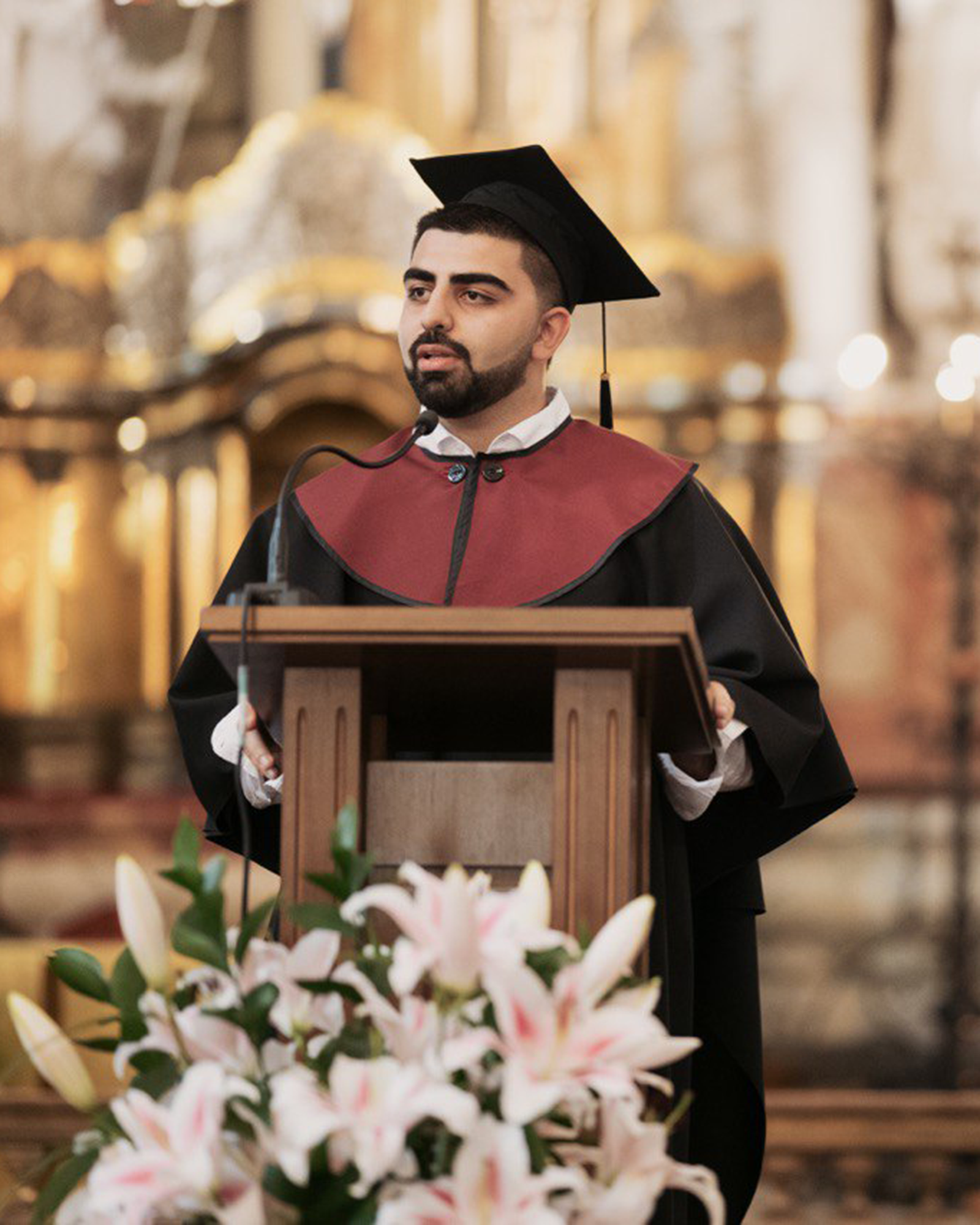
Vagif Gurbanov, Global Business and Economics graduate 2023
It is hard to believe, 2 years of studying at Vilnius University passed in a flash. It was a very enjoyable and full of experience journey. Being a graduate of MSc. Global Business and Economics program I can honestly say that the theoretical and practical foundation of understanding the business management is created successfully.
This program is a really great opportunity for the multicultural study experience. Not only is the student environment multicultural, but also lectures. It is a great opportunity to learn the teaching and study methods from different people who come from different parts of Europe.
The constant support from administration makes the motivation for studying even greater. You will definitely gain friends from different cultures which will definitely broaden your scope.
I am really proud and honoured to be a Vilnius University graduate and I would highly recommend to anyone planning to apply for this program and VU in general. Your hard work will always be rated here.
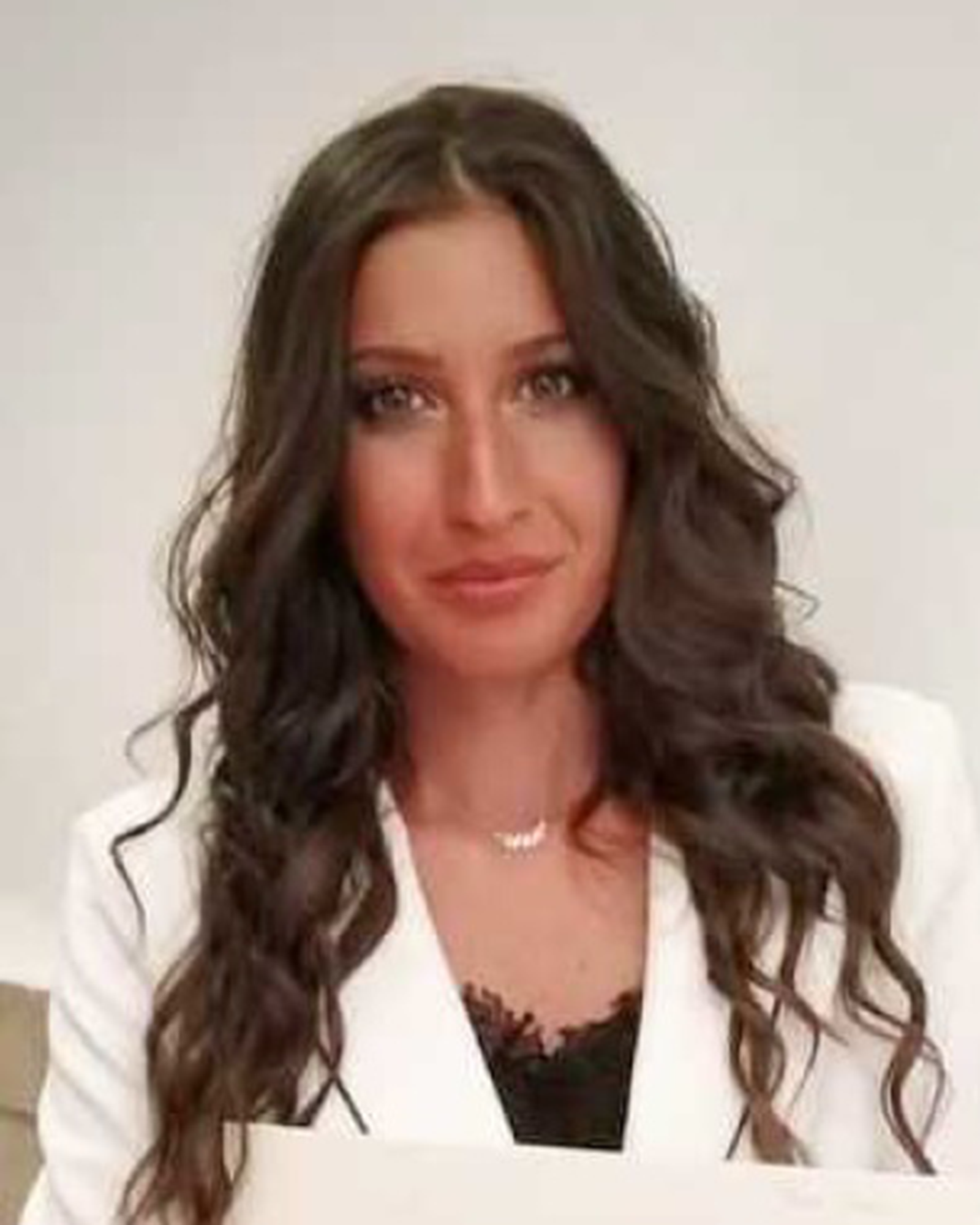
Daniela Fedele, Global Business and Economics graduate 2020
My name is Daniela, I come from Italy and I graduated from Vilnius University in Global Business and Economic Master Program. First time I joined VU was for the Erasmus program that lasted 5 months, and afterwards I decided to come back and apply for a master degree, and it was one of the best choices I have ever made. My experience at VU was incredible. I was honored to receive a scholarship during my studies and extra incentives in order to achieve higher performance. It was an international and multicultural experience full of challenges and continuous improvements. A long path of professional growth, and much more.

Ilker Teker, Global Business and Economics graduate 2020
Being a graduate of Global Business and Economics Master study programme, I would like to share my insights. When I started my Global Business and Economics studies, I aimed to write scientifically proper and valid master thesis in English. Administration of my study programme dealt very well with the changed circumstances because of the pandemic, I graduated without any extra struggles. When I was doing my research, I received help from both faculty management and my advisor professors. Having a Master’s degree will make me a better candidate in future job applications or academic career. For this reason I would like to thank all faculty members and professors who helped me in my studies.
Luana Baglieri (Italy), Global Business and Economics programme graduate
"Thanks to this experience, I improved my professional and personal skills and this will help me to make the difference in the working context."
Oleksandra Slobodianiuk, Global Business and Economics programme graduate
“It was an honor for me to become a part of this great and diverse community of Vilnius University. The studies at the university became for me one of the most wonderful encouragement for my development and growth”
Anastasiia Kuz, Global Business and Economics graduate 2020
“I cannot believe that my 1,5-year journey in Vilnius University is over. After graduation in Ukraine, I was dreaming about studying at Vilnius University and when I received the acceptance letter I was over the moon. I was excited that my life was going dramatically changed.
Studying at VU on programme “Global Business and Economics” gave me not only strong knowledge from different business management areas but also the opportunity to grow and develop. Professors are professionals and always open for communication with students – it was unusual for me. After exams period each semester students with high academic achievements have a chance to be nominated for scholarship – it is a great reward for all your efforts and motivation to keep moving forward.
I am grateful to VU for giving me an opportunity to participate in Erasmus+ Programme, which definitely changed my life. I spent one semester in Belgium, studying at KU Leuven. And even at distance from my alma mater, I felt the support of VU staff.
Also, University cares for further employment of the students providing consultations about career, how to prepare CV etc. After graduation, I was accepted for an internship at cosmetics start-up in Belgium. And all thanks to the background which I got at Vilnius University.
Finally, I cannot but mention work of ESN VU! Guys care for newcomers providing with any help you need when you moved to another country and throwing interesting events to make new friends. They made my student life unforgettable.”
Maksym Leus, Global Business and Economics graduate 2020
“Global business and economics study program gave me additional knowledge in management, economics and econometrics . There are several reasons why I have recieved a pleasure during master study program in VU. Firstly, a wide range of disciplines and excellent knowledge of the subject by professors. Secondly, disciplines were taught by both Lithuanian and foreign academics, which made possible to study also the cultural aspects of doing business in different countries. Thirdly, if your grades are high, you can obtain stimulus in form of scholarship. And the last, friendly administration which will help you 24/7 . Thanks for this unforgettable 1,5 year .”
Fee & Finances
*Annual tuition fee: 5460 Eur
Tuition fee might be postponed, but no later than December 1 in the Autumn semester and May 1 in the Spring semester; or can be payed in installments no less than 30 % of the semester tuition fee before the first month of each semester and dividing the remaining sum to one or two instalments which have to be paid before 1 December in the Autumn semester and 1 May in the Spring semester.
*Tuition fee might change insignificantly due to state regulations.
STATE FUNDED PLACES AND LOANS
State-Funded Places for Bachelor Students
Citizens of the Republic of Lithuania or other member states of the European Union (EU), European Free Trade Association (EFTA), persons (non-EU/EFTA) granted a right of permanent residence in the Republic of Lithuania, children, grandchildren and great-grandchildren of the Diaspora and people of Lithuanian origin, can apply for the State-Funded Place in the programme.
For more information, please follow this link or contact us by e-mail at
State-Supported Loans
Students are granted the possibility to apply for State-Supported Loans that are issued through a selected bank for one academic year. Loans can be given in these cases:
– To cover the tuition fee. The maximum amount equals the yearly tuition fee for the study programme you attend. This loan is paid directly to the account of the University;
– To cover living expenses. The maximum amount currently is 2000,00 EUR per year. This loan is paid in equal monthly instalments until 1 July to the borrower's personal account (for last year students until graduation);
– For partial studies abroad. The maximum amount currently is 2400 EUR, to be paid all at once to the borrower's personal account.
The loan repayment period begins no later than 12 after graduation, or termination of studies and is repaid within no more than 15 years from the beginning of the repayment period.
The applications and disbursements of the study loans are carried out by the State Studies Foundation. Please note that there are requirements that you must meet in order to be able to apply for the loan. More information
TUITION FEE POSTPONEMENT/PAYMENT BY INSTALMENT
Students who pay for their studies can apply for:
– Postponement of tuition fee for the semester for no later than December 1 in the Autumn semester and May 1 in the Spring semester;
– Semester tuition fee payment by instalments – paying no less than 30 % of the semester tuition fee before the first month of each semester and dividing the remaining sum to one or two instalments which have to be paid before December 1 in the Autumn semester and May 1 in the Spring semester.
Applications for both of the options are only available form the second year of the studies for those admitted via the admission system at apply.vu.lt. Applications are welcome during the first month of each semester via the eStudent environment.
TUITION FEE REDUCTION & COMPENSATION
– For students actively engaged in scientific research at the University, for one semester.
Up to 100 % of the semester tuition fee could be reduced for the students who are champions or prize winners of the world or European student research contests, co-authors of inventions patented by the European Patent Office (EPO), the United States Patent and Trademark Office (USPTO), or the Japan Patent Office (JPO).
From 30 % to 90 % of the tuition fee could be reduced for students, who are champions or prize winners of Lithuanian research contests.
– For students actively engaged in cultural activities at the University for the period no less than two years, for one semester.
From 30 % to 90 % of the fee could be reduced for students, who as members of the University’s performance art groups, have represented the University and become winners of awards and prizes at international and national music, theatre, choir, folklore contests or festivals.
– For students actively engaged in sports and so representing the University, for one semester.
Up to 100 % of the fee could be reduced for sportsman students if they are members of or candidates to the national Olympic team, world champions and prize winners in adult or youth competitions of their chosen branch of sport, European champions and prize winners, champions and prize-winners of world student championships.
From 30 % to 90 % of the fee could be reduced for students, who are champions and prize winners of Lithuanian championships, SELL (Baltic Student Games) champions and prize winners, champions of Lithuanian student games, members of Lithuanian national adult and youth teams, members of the University teams.
– For employees of the University (with the possibility to distribute the payments within semesters).
Up to 70 % of the tuition fee could be reduced for employees of the University who have been working at the University part-time or full-time for at least 10 months.
More information regarding the reduction of tuition fees could be found at the Description of the Procedure of Payment, Reimbursement, and Recovery of Tuition Fees at Vilnius University.
Tuition Fee Compensation
– Be eligible for State-Funded study places at Lithuanian higher education institutions (Citizens of the Republic of Lithuania or other member states of the European Union (EU), European Free Trade Association (EFTA) or the United Kingdom (UK), persons (non-EU/EFTA/UK) granted a right of permanent residence in the Republic of Lithuania, children, grandchildren and great-grandchildren of the Diaspora and people of Lithuanian origin);
– Have no academic debts;
– Have reached the excellent or typical level of learning achievements.
The list of students who have achieved the best learning outcomes is provided to the State Studies Foundation by the University. Tuition fees are compensated every year. Students granted tuition fee compensation are informed personally and are ought to submit an application for the compensation to the State Studies Foundation. You can get more information by contacting the State Studies Foundation.
TRANSFER TO SATE-FUNDED PLACES
– They are eligible for State-Funded places at Lithuanian higher education institutions (Citizens of the Republic of Lithuania or other member states of the European Union (EU), European Free Trade Association (EFTA) or the United Kingdom (UK), persons (non-EU/EFTA/UK) granted a right of permanent residence in the Republic of Lithuania, children, grandchildren and great-grandchildren of the Diaspora and people of Lithuanian origin);
– They comply with the criteria of good study performance;
– There is an available State-Funded place after a student at the same study same field of study, the same form and the same course is expelled from the University, or terminates the studies. In cases like this transfer is proceeded twice a year, during the first month of each semester;
– There is an available State-Funded place after a student in the same field of study, the same form and the same course loses their State-Funded place during rotation. In cases like this, State-Funded places are filled once a year, after the rotation – before 15 October.
Information regarding available State-Funded places is announced by the Academic Core Unit on their website and on the eStudent environment.
The transfer of students to and from State-Funded places is proceeded by each of the Academic Core Units following the temporary Description of the Procedure for the Rotation and Ranking of Vilnius University Students Based on their Learning Outcomes.
More information regarding assessment and rotation could be found here
SCHOLARSHIPS
VU FEBA Admission Scholarship
Ten one-off Scholarships equal to 1000,00 EUR each will be awarded for the most motivated and competent international students applying to the Bachelor's and Master‘s programmes of Faculty of Economics and Business Administration.
The Scholarship is payable directly to the successful applicant after their arrival to study at Vilnius University Faculty of Economics and Business Administration.
Eligibility:
Candidate from any foreign country will be awarded after successful admission procedure and motivation interview to any Bachelor's and Master‘s study programme at Vilnius University Faculty of Economics and Business Administration. The ranking of best students will be made after motivation interview where students get points depending on their grades, motivation to study in Lithuania, Vilnius University and chosen study programme. If different students get same score, then grades average is compared, if also coincides the higher motivation score will be evaluated. To get the scholarship students must pay first tuition fee for their studies.
Scholarships To Get During the Study Period
All students of the University can apply for different scholarships during the study period. The way these scholarships are disbursed is stipulated by the Vilnius University Scholarship Regulations and the Lithuanian Law. More information
Incentive Scholarship – a monthly scholarship for students with excellent learning outcomes. The scholarship is granted for students every semester for the results of the previous semester – in March for the results of the Autumn semester and in October – for the results of the Spring semester.
The provided amount (60,00 EUR or 100,00 EUR) depends on the learning outcomes (the student's place in the rank of students each semester). Around 10 % of the course students get the incentive scholarship.
One-Off Social Scholarship – a scholarship, provided in the case of financial problems caused by such unfortunate events as the illness of the student or a family member, the death of a relative, natural disaster and so on. Applications for the scholarship can be filled at the eStudent environment anytime throughout the study period.
The size of the scholarship (from 80,00 EUR to 480,00 EUR) highly depends on how difficult the situation is to the applicant.
One-Off Earmarked Scholarship – a scholarship granted for students with relevant achievements in sports, cultural and scientific/social activities. The application for the scholarship with the required documents could be submitted to the eStudent environment until 25 March in the Spring semester and until 25 October in the Autumn semester.
The size of the scholarship (form 40,00 EUR to 600,00 EUR) depends on the achievements.
Nominal Scholarship – a scholarship granted for students based on certain fields of activity for their achievements or contributions in these fields. The grounds and principles of granting nominal scholarships are established in the regulations of a specific nominal scholarship and/or support agreement. Please contact the Academic Core Unit where you study to find out your options.
Social Scholarship – a scholarship (260,00 EUR) provided by the State Studies Foundation granted for students who meet at least one of these requirements:
– If they come from a family with a difficult financial situation;
– If their working ability is reduced to 45 % or more;
– If they are not older than 25 and have been granted guardianship before their full legal age.
You can only be granted the social scholarship if you as well are a citizen of a European Union (EU) of European Free Trade Association (EFTA) member country, or if you are an international student (citizen of non-EU or non-European Economic Area country) and have been granted permanent residency in Lithuania (not applicable for foreigners of Lithuanian origins).
The applications for social scholarships have to be submitted to the State Studies Foundation from the 15 September until 10 October in the Autumn semester and from 20 January until 20 February in the Spring semester. Please contact the State Studies Foundation for more detailed information.
Support for Foreigners of Lithuania
Social Scholarship – provided for students in a tender row based on the study programme and the year of studies, the form of the studies and the achievements. The scholarship (130,00 EUR) is granted each semester and is disbursed every month.
Social Disbursement – granted for foreigners of Lithuania who meet one of these requirements:
– Students of age 26 and under, whose both parents or guardians are dead (319,00 EUR);
– Students of age 26 and under, whose one of parents or guardians is dead (261,00 EUR);
– Students of age 26 and under, whose one of parents or guardians has a disability (232,00 EUR);
– Students of age 26 and under, who come from large families where at least 3 underage children or young adults (of age 26 and under) are enrolled on formal education programs (203,00 EUR).
The applications for social scholarships and social disbursements have to be submitted to the State Studies Foundation until September 30 in the Autumn semester and February 20 in the Spring semester. Please contact the State Studies Foundation for more detailed information.
State Scholarship for the Lithuanian Language and Culture Courses
Education Exchanges Support Foundation takes pleasure in offering Lithuanian state scholarships for students, lecturers and researchers of foreign countries to attend Lithuanian language and culture courses.
More information.
Contact Us

Programme coordinator
Laura Česlauskaitė

Head of study programme
Laimutė Urbšienė
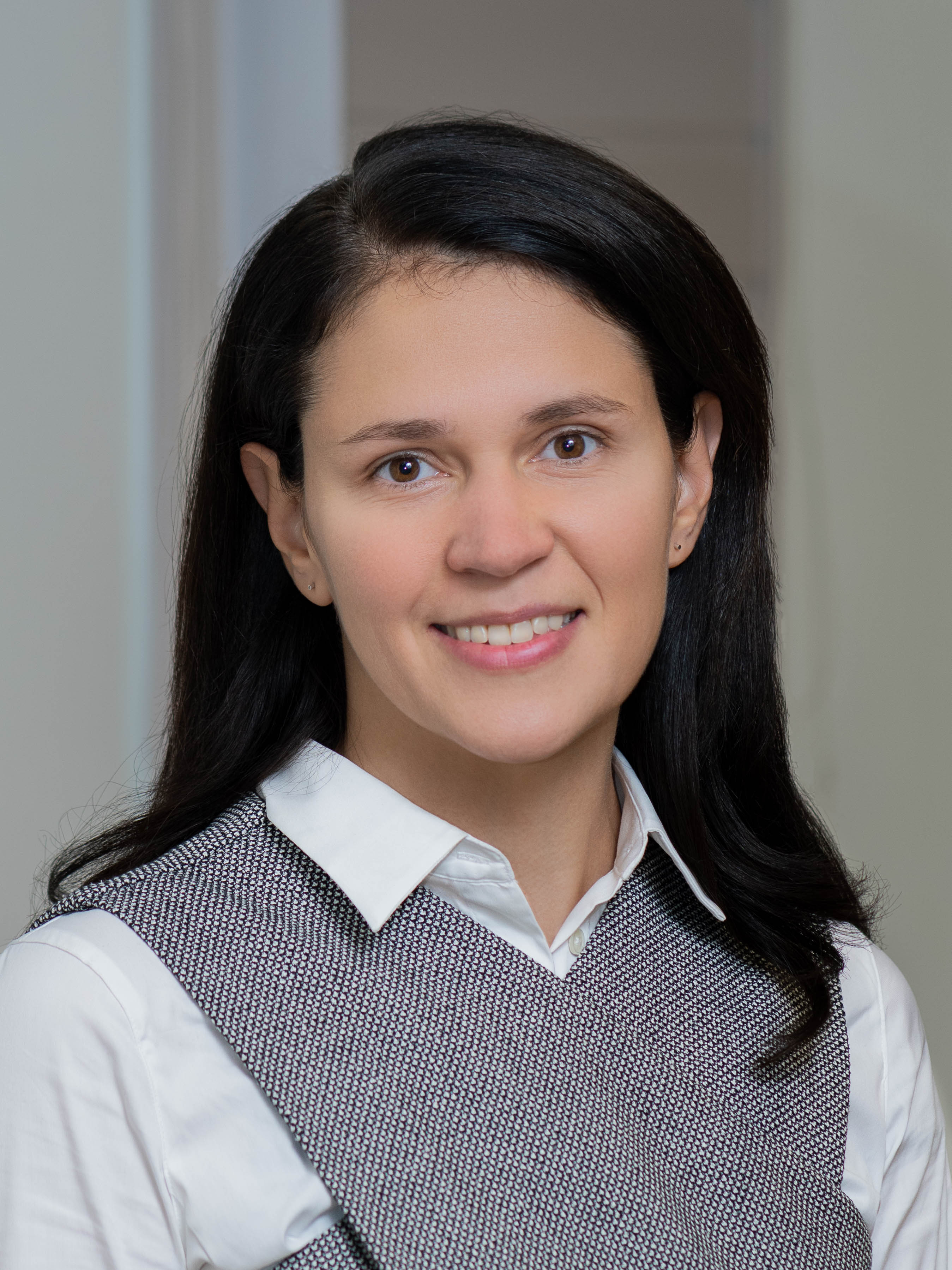
Study programme lecturer
Giedrė Dzemydaitė

Study programme lecturer
Arūnas Burinskas
For Students
Students of this program choose their own places for internships, but the faculty, in cooperation with various business companies and state institutions, offers the opportunity to carry out internships according to signed partnership agreements. In the table you will find information about the opportunities for this study program and contacts where students can apply for internships directly.
Double Degree
Global Business and Economics students have an opportunity for double degree studies at either University of Parma, or the Parthenope University in Naples in Italy.
Double degree studies is a great opportunity to deepen and expand knowledge and to acquire a second diploma from a partner university on the basis of the similarities between the programmes and the competencies they develop.
Global Business and Economics students can go for double degree studies either in the second (University of Parma) or the third (Parthenope University of Naples) semester of their studies. Master thesis is defended in the fourth semester of studies at Vilnius University.
Double degree programme includes the following study subjects:
At the University of Parma
|
Study subject* |
ECTS |
|
Sociology and Economics of Globalisation |
9 |
|
Cooperation and Competition Among Firms |
9 |
|
International Branding & Retailing |
10 |
|
Communication Skills |
3 |
|
Scientific Research Project I (defended at VU) |
5 |
At the Parthenope University in Naples
|
Study subject* |
ECTS |
|
Customer Experience management |
6 |
|
International Monetary Economics |
9 |
|
Risk Management |
6 |
|
EU LAW and digital Data |
6 |
|
Project Work |
3 |
|
Scientific Research Project II (defended at VU) |
10 |
* Study subjects may slightly change due to the improvement of study programmes.
If a student wishes to participate in the double degree programme, they have to send a motivation letter via e-mail to VU FEBA Head of studies Gintarė Paulauskaitė till the 15th of November for DD studies at the University of Parma and till the 15th of March for DD studies at the Parthenope University in Naples.
If a student wishes to apply for Erasmus+ scholarship for their DD studies, they have to do so during the general Erasmus+ application period.
The exact dates of Erasmus+ application period are announced in the beginning of each semester on VU FEBA and VU websites.



